Award Winning Undergraduate Thesis Writer Holly Nelson on the Importance of Undergraduate Research
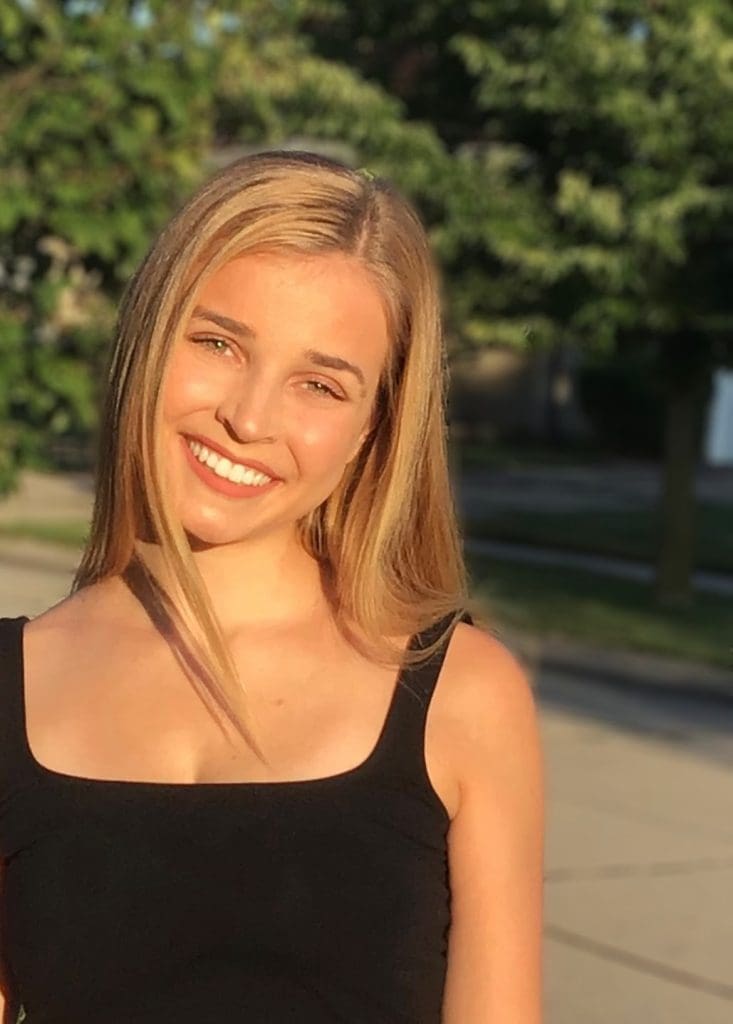
Over the past year, the History Department at Hopkins continued its effort to support and encourage undergraduate research. Between the classes taught by Graduate students supported by Dean’s Teaching Fellowships (Lee Borocz–Johnson, Laurence Bond, and Thomas Keegan, in the Fall of 2022; Vincenza Mazzeo, Malaurie Pilatte, Gregory Smaldone, and Taylor Stephens in the Spring of 2023,) “history labs” taught by faculty such as Dr Kim in conjunction with the CRAAV Research Collective, and the development of the Undergraduate major, undergraduate research continues to be a critical part of the Department’s life.
Recent graduate and Kougell Prize winner Holly Nelson shares her experience as a History major, and the skills she has honed in conducting historical research within the Department.
- Can you briefly introduce yourself?
“My name is Holly, and I’m a recent Hopkins grad (Class of 2023) from Detroit, Michigan. At Hopkins, I triple-majored in History, English, and Medicine, Science, and the Humanities and researched Black American theatre and performance from the Harlem Renaissance to the Black Arts Movement as a Woodrow Wilson Research Fellow. Apart from school, I love acting, singing, and dancing!”
- What has been your experience with the History Department at JHU?
“So! Much! Research! Pretty much all of the History courses I took at Hopkins were research-based, involving a lot of archival work. Some of my favorite research courses were “History Research Lab: Women and the Vote” and “History Research Lab: Hard Histories at Hopkins” with Dr. Jones, and “Paris Noire” with Malaurie Pilatte. These classes allowed me to go digging in the archives, produce high-quality research on relatively understudied topics, and present my work.”
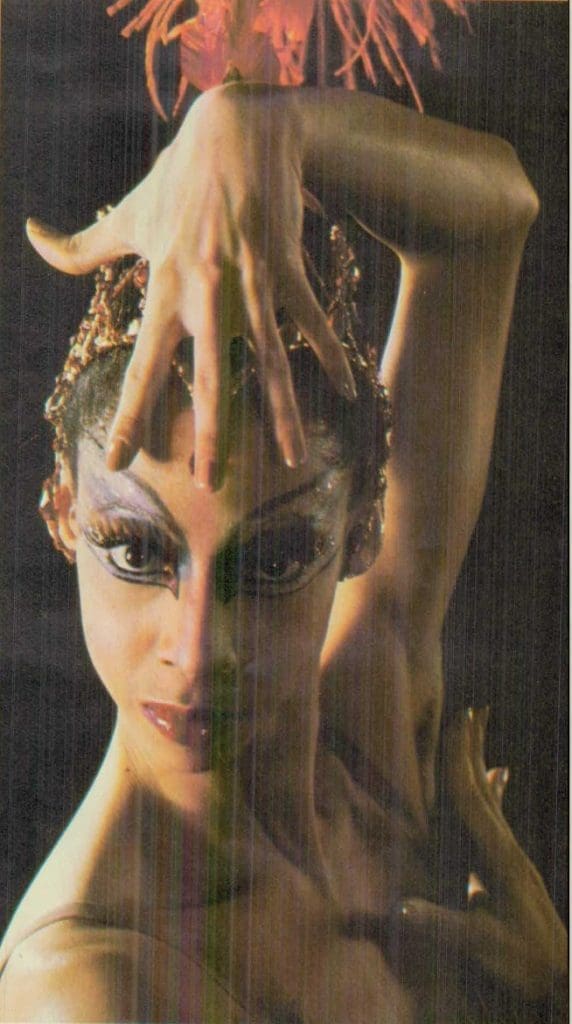
“And, of course, I loved the built-in research courses like the sophomore year-long seminar (where I wrote about modern dance choreographer Alvin Ailey) and the senior thesis (where I crafted an analysis on the Dance Theatre of Harlem, for which I won the Arthur Kouguell Prize). Both of those courses helped me develop an interest in the longform essay and making substantive arguments in conversation with historians.”
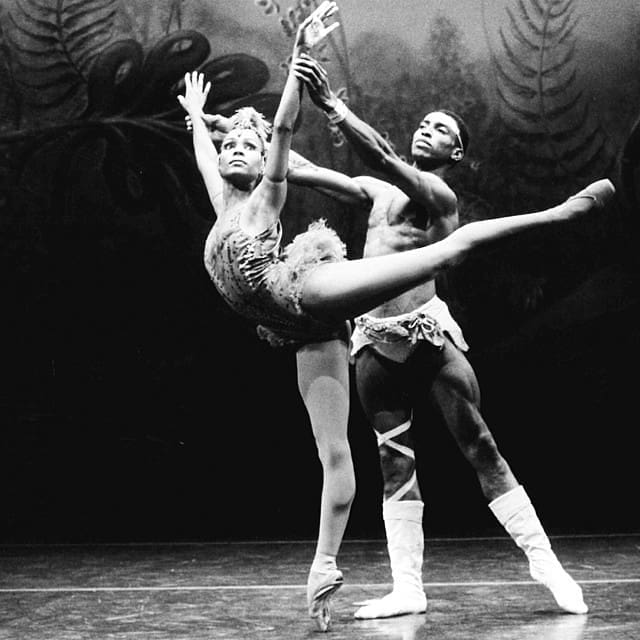
- In what ways would you say your involvement with the Department has benefitted you intellectually, professionally, and/or personally?
“The research opportunities within the Department, and the wonderful experiences I’ve had while conducting research, have motivated me to pursue a PhD directly from undergrad. I just started my PhD in English and Performance Studies at the University of Michigan, where I aim to conduct interdisciplinary research spanning literature, history, and performance. Although I’m only a week into grad school at the time of this interview, I can confidently say that the Department’s intimate, rigorous seminars have well-prepared me for holding my own in-class discussions with graduate students and faculty!”
- Do you see yourself using the research you’ve done within the Department in other ways in the future?
“Absolutely. While I’m doing a PhD in English, and not History, I believe the skills I’ve gained from my research with the JHU History Department have well-equipped me to be a successful literary critic. Nowadays, a lot of literary scholars are turning to the archives to support their research. As someone who has spent the past four years crafting arguments based on archival evidence, I feel confident in my archival abilities, and I look forward to putting this skill to use in future seminar papers and conference papers. Further, due to my essay-writing experiences with the sophomore seminar and senior thesis, I am unafraid of writing really long essays, which I envision will serve me well in graduate school!”
- What are some ways you would like to see undergraduate research supported and foregrounded?
“I would love to see a History Department-sponsored research symposium. Doing the research is one thing, but presenting the work is a whole new beast. I think it would be so fun to see the sophomore seminar students, senior thesis writers, and anyone else who has done History research come together and present their findings. Perhaps, depending on the number of participants, presentations could be organized thematically into sessions, just like an academic conference. I would have loved something like that!”
- Are there any specific classes, events, professors you’d like to see highlighted in this article as fostering undergraduate research in helpful ways?
“Again, I’d like to shout out Dr. Jones’s History Research Lab courses! Open to anyone, these classes give students the opportunity to work in the archives and produce unique and relevant public-facing projects. In the “Women and the Vote” lab, I worked on poet and suffragist Frances Ellen Watkins Harper, and analyzed her intersectional call for suffrage in her understudied poems. In “Hard Histories,” my work centered on the Wyman Villa (a residence owned by the slaveholding Wyman Family that stood on the JHU grounds until 1955), and Julia and Benjamin Gross, the Black workers who labored there in the twentieth century. I’d encourage anyone with an interest in research to enroll in these meaningful courses.”
History Minor Bonnie Jin Reflects on Local and Global Experiences
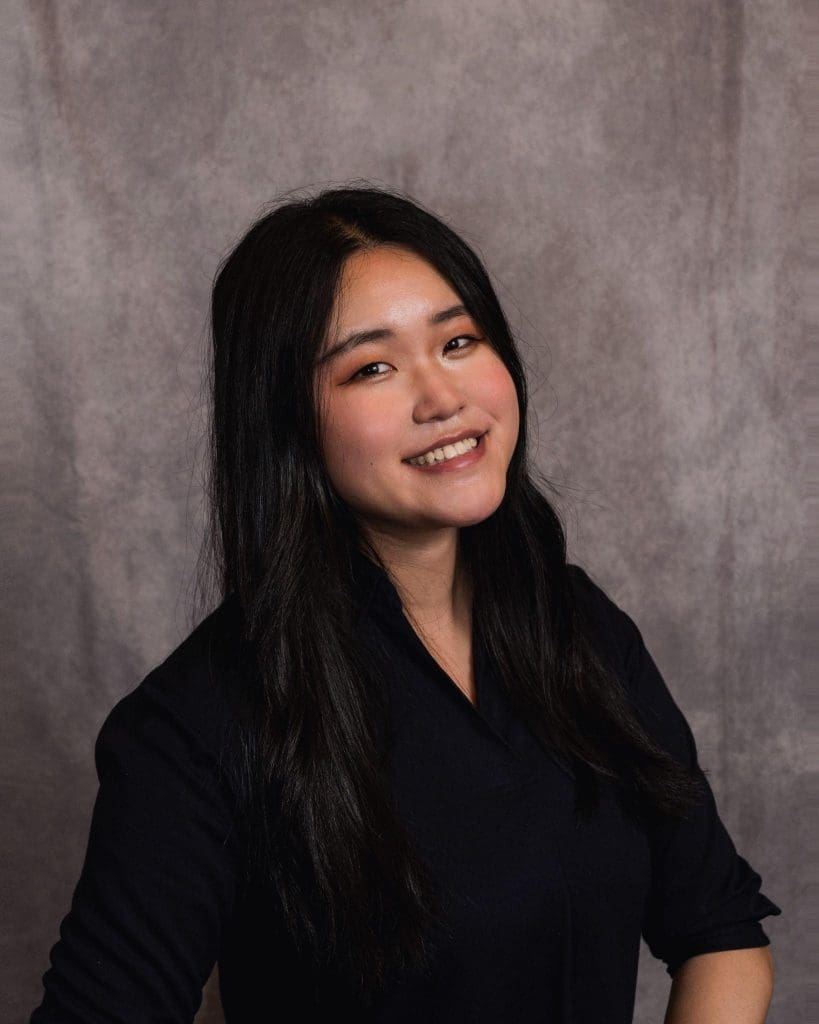
Bonnie Jin, another recent Hopkins alum from the class of 2023, went on to work in the Mayor’s Office in the City of Boston after graduation, where she is also involved in local organizing. At Hopkins, Jin majored in International Studies, with minors in History, Anthropology, and East Asian Studies. “Since I first entered Hopkins in 2017,” Bonnie shared with me, “the History Department at JHU has been an amazing space for mentorship, intellectual discussions, and growth.” While at Hopkins, she enrolled in a variety of classes offered by the History department such as the History of Modern Germany, 20th century Chinese and Japanese history, as well as Modern Latin America. “Discussing history with students from a variety of backgrounds and views has sharpened my abilities in critical thinking, argumentation, and empathy,” Bonnie told me. In Dr Meyer-Fong’s course on national identity in China and Japan, Bonnie had the opportunity to share the space with Chinese, Japanese, and Korean students. As a Taiwanese student, Bonnie found the experience “eye-opening — it illustrated ways in which a shared history could be fragmented in its interpretation, and how that fragmentation can foment nationalisms which continue to reverberate today.” Jin went on to share her research at a series of conferences, including in Princeton for the American Anthropological Association in the Spring of 2023. Jin was happy to share that her undergraduate research is in the process of being published in a forthcoming anthology of articles on civil society in Asia.
The skills she acquired within the History Department at Hopkins were key to Bonnie’s professional development. In Dr. Casey Lurt’z course on Modern Latin American history, she learned to use ArcGIS StoryMaps to present the findings of her research project in the class. The following year, Bonnie shared her knowledge of StoryMaps with the South Baltimore Community Land Trust. “This past year,” Bonnie added, “while working at the Mayor’s Office here in Boston, I drew from concepts I’d learned in Dr. Lurtz’s course to provide recommendations and ideas on how we could better visualize progress made on the Green New Deal for Boston.” The lessons she learned at Hopkins shaped Bonnie’s understanding of the role of history at large. “History, and the interpretation of history,” she told me, “has and continues to be an issue of contentious debate — whether on the ultra local level, or on the national and international level. It informs wars and conflicts; it shapes zoning codes and food justice policies.” The city of Boston also recognizes the role that historians can play in the present time and in the shaping of policies, and has just decided to consult historians in an effort to build a better understanding of Boston’s history and legacy of the transatlantic slave trade, “the results of which will inform concrete reparations policy.”
Advised by Professor Tobie Meyer-Fong, Bonnie Jin wrote a senior thesis which had a lasting impact on her intellectual, and professional life as well. “As a Taiwanese American, it was incredibly meaningful for me on a personal level to be able to write my senior thesis on Taiwan.” The process allowed her to strengthen her Chinese language skills, gain a deeper understanding of Taiwanese history and politics, and make connections with Taiwanese activists, filmmakers and writers. That knowledge proved critical when Ambassador Bi-Khim Hsiao visited Boston in July of 2023. Jin was part of the staff that sat at the table during the meetings between the Ambassador and Boston’s Mayor Wu. “I intend to continue working and organizing locally, at least in the short-term,” Bonnie shared with me, “but in the future, as tensions continue to increase across the Taiwan strait, I hope to play some role, however small it may be, in bringing greater peace, solidarity, and justice to the region.”
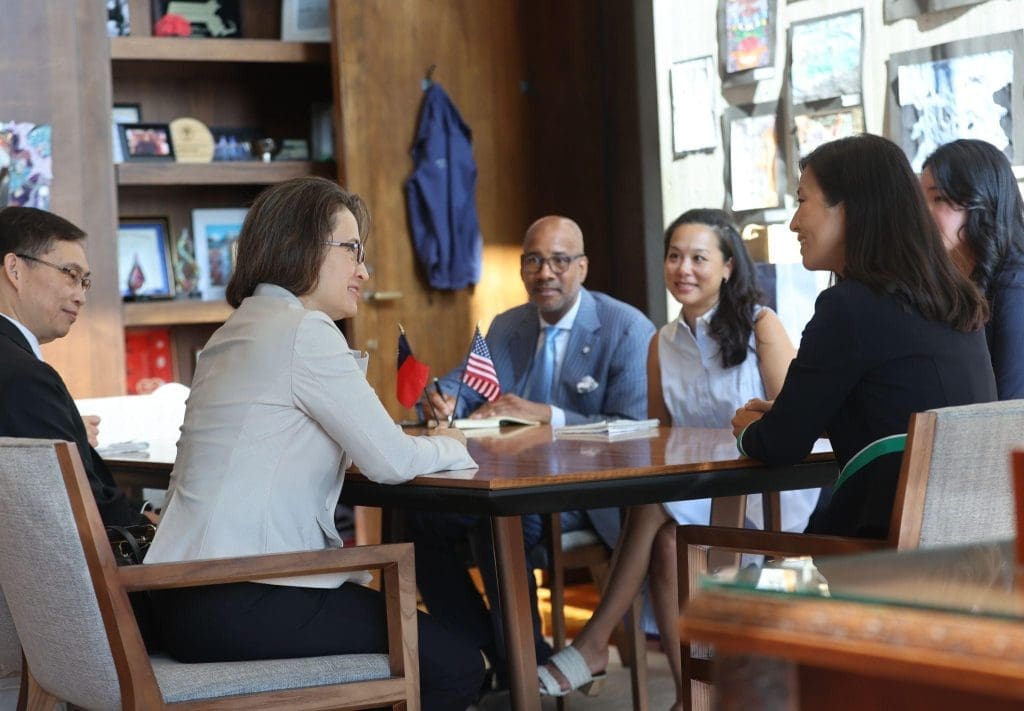
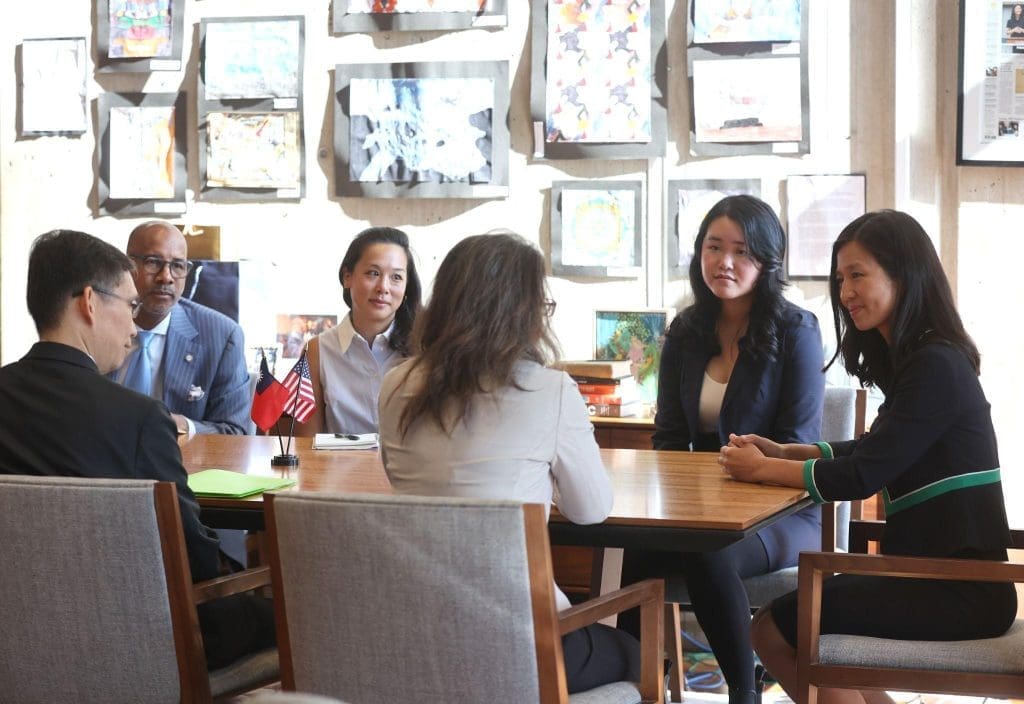
Overall, Bonnie Jin looked back fondly on her time as an undergraduate at Hopkins, and on her involvement with the History Department. “I hope the university continues to fund projects which include a fieldwork component to it” Bonnie told me. She noted the important set of skills one can gain from firsthand access to archives in their original location– “you gain so much contextual information that can aid in your interpretation of sources while doing fieldwork.” Students should be given the opportunity to explore, fail, and change their minds throughout the research process, she argued. “You learn so much about yourself, about academic research, and about the subject matter during this process. It’s also more fun doing something you know you’re passionate about because you chose it — and you’ll need that passion for getting you through hard times while writing the thesis.” Bonnie shared her hope that Hopkins will continue to fund and support the kind of hands-on research that she had the opportunity to conduct as an undergraduate.
Insights from the Past Year: Former Director of Undergraduate Studies, Sarah Pearsall
Director of Undergraduate Studies, Dr Sarah Pearsall, reports that the Department’s undergraduate program had a “busy year,” with many new developments. The Department graduated 15 majors and 18 minors in May 2023. Dr. Pearsall was happy to share that the Department launched a number of new initiatives to benefit undergraduate majors in the Spring, and credits the efforts of the Undergraduate History Association and its president, Hanan Abdellatif for playing a decisive role. Last year’s senior thesis writers helped recruit students by sharing their experiences in a meeting with rising seniors considering writing their own. With help from Professor John Marshall and others, Professor Pearsall and the Undergraduate History Association hosted a successful career night with Hopkins history alumni—from law, journalism, and other areas.
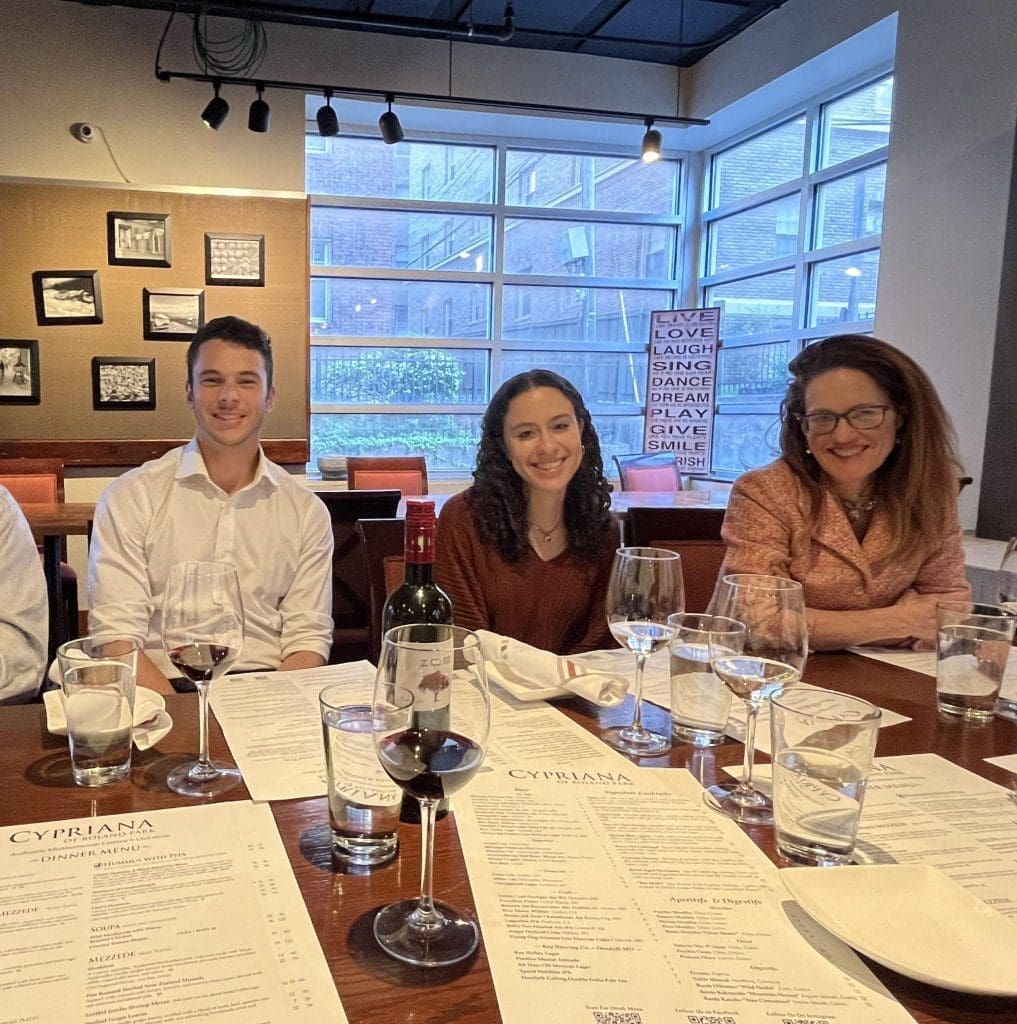
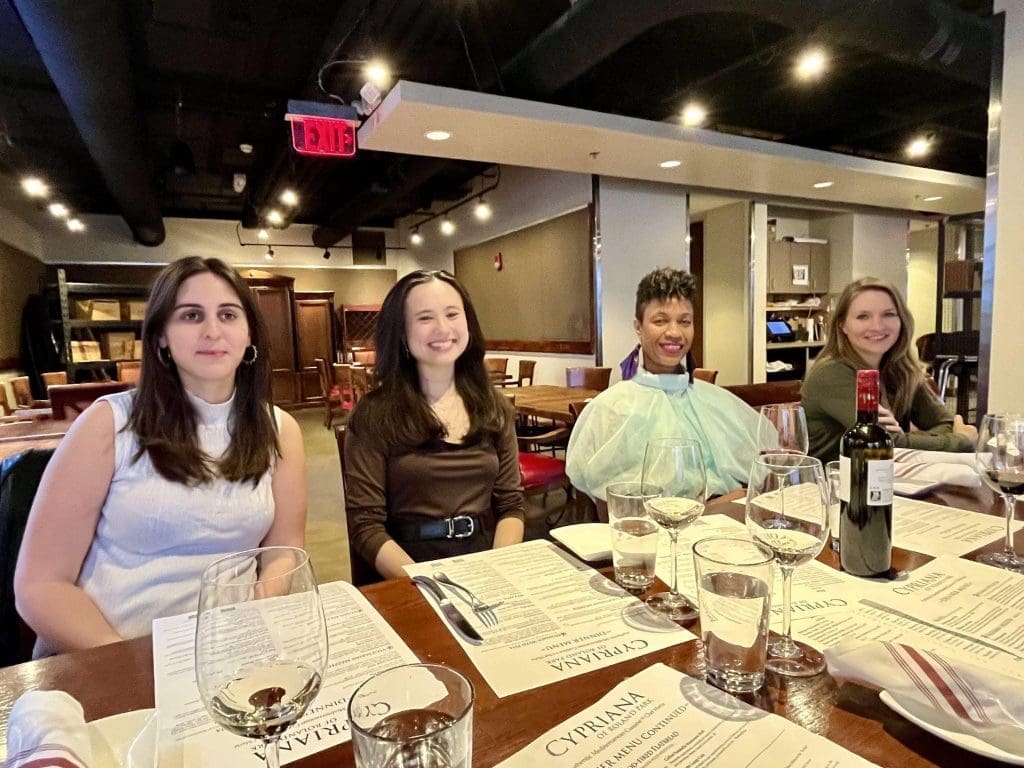
In addition to professionalization and training, the Department was also able to hold a series of social events such as a dinner for senior thesis writers and their advisors at Cypriana. This celebration of student research was such a success that the Department has decided to make it an annual event. The Undergraduate History Association, with the help of our excellent undergraduate administrator, Rachel LaBozetta, also hosted a well-attended and very festive end-of-year Ice Cream Social. Finally, at the end of the academic year, the Department not only awarded senior Holly Nelson with the annual Kougell prize for the best Senior Honors Thesis, but also the Department’s inaugural Undergraduate Leadership Award, won by Hanan Abdellatif, for her contributions to the Department. Dr Pearsall extended congratulations to all of the graduating seniors.
